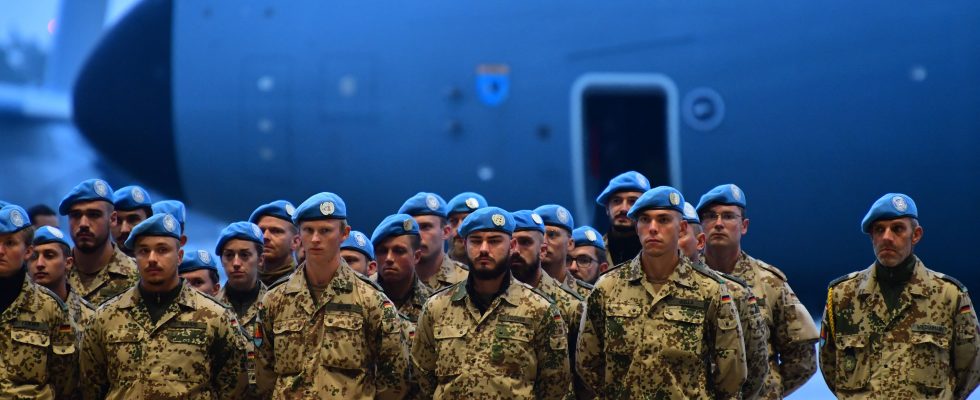Is Europe preparing for the next war? As the conflict in Ukraine bogs down and the Middle East continues to burn, the tone is becoming martial in several countries. In France, Prime Minister Gabriel Attal announced, Tuesday January 23, the launch of “work” with a view to generalizing the Universal National Service (SNU) “at the start of the 2026 school year”, during his general policy speech to the ‘National Assembly. “Our civic rearmament is to strengthen the republican unity of our youth. It is to allow all the young people of France to form a nation. This is the very role of the Universal National Service. I am launching the work with a view to its generalization at the start of the 2026 school year”, indicated Gabriel Attal.
Same story in Germany. German Defense Minister Boris Pistorius believes that given the security situation and the needs of the army, Germany should consider introducing compulsory military service. “We have to ask ourselves who should defend this country when things get serious,” he stressed, Wednesday January 24, during a debate on the budget in the Bundestag, the lower house of the German Parliament. “We cannot ignore this debate,” he said, without committing to the question of military service: “Each model needs a political majority and a society that supports it. supports.”
The minister recently proclaimed in a German newspaper: “We must take into account the fact that Vladimir Putin could one day even attack a NATO country.” Although he believes that such a scenario is unlikely at present, “[les] “Experts expect that it will be possible within a period of five to eight years.” Boris Pistorius further reaffirmed the need to strengthen the Bundeswehr, the German army, and therefore to increase defense spending.
The minister also welcomed the fact that Germany has achieved for the first time in decades the NATO target, according to which member countries must devote at least 2% of their budget to defense. With a federal defense budget of a record 72 billion euros, this is 2.1%, he said. “This is going in the right direction and it is adapted to the seriousness of the situation,” reassured Boris Pistorius, referring to Russia’s invasion of Ukraine almost two years ago.
Military spending: 5% of German GDP
At the end of 2023, the minister promised to make the Bundeswehr “the backbone of collective defense in Europe” and presented new directives. Note that the last directives from the German army dated from 2011. Among the important points, the government insists that the Bundeswehr is also capable of engaging on the international scene, as it did in the Western Balkans and in the Sahel region. The share of military spending was 5% of German GDP in the 1960s then fell below 2% since 1990 and the breakup of the USSR, with only 1.3% in 2021.
Same in the United Kingdom. The Chief of Army Staff, General Sir Patrick Sanders, has called for a return to compulsory military service in the face of the Russian threat, sparking opposition from the population. In other words, he wants a strengthening of defense means through conscription, suspended in 1960. On several occasions, General Sir Patrick Sanders insisted in his speech on Wednesday January 24 that “Ukraine really matters”, where the need for our societies to be “on a war footing”.
“Should the British prepare for war?” is the question asked in many English media. For its part, the government tempered the general’s remarks, insisting that “the British army will remain an army of volunteers.” For the moment, Downing Street says it is not working on such a subject, which does not prevent it from watching with concern the war taking place in the east of Europe. In his first major speech on defence, the minister responsible for the subject, Grant Shapps, declared that the country was moving from a “post-war world to a pre-war world”. He highlighted many threats, but always the same common thread among all these warnings: Russia.
Towards a Finnish model?
Will the United Kingdom follow the example of Sweden, which has just reintroduced a form of military service? The country already benefited from partial conscription, that is to say that not everyone is enlisted. For its part, Finland, which has a 1,340-kilometer border with Russia, has a broader conscription. Around 80% of the male population performs military service in one form or another. Refusal can result in a prison sentence, but there is also the possibility of doing civic service without a uniform. Therefore, Finland can collect one of the largest armies in Europe. The size of its active armed forces is only 19,000, but it can call on 238,000 reservists.
For their part, NATO officials are also on alert. In mid-January, the alliance’s top leader, Admiral Rob Bauer, said member countries needed to be on alert “and expect the unexpected,” adding that the public needed to change its state of mind. spirit towards an era “where anything can happen at any time”.
